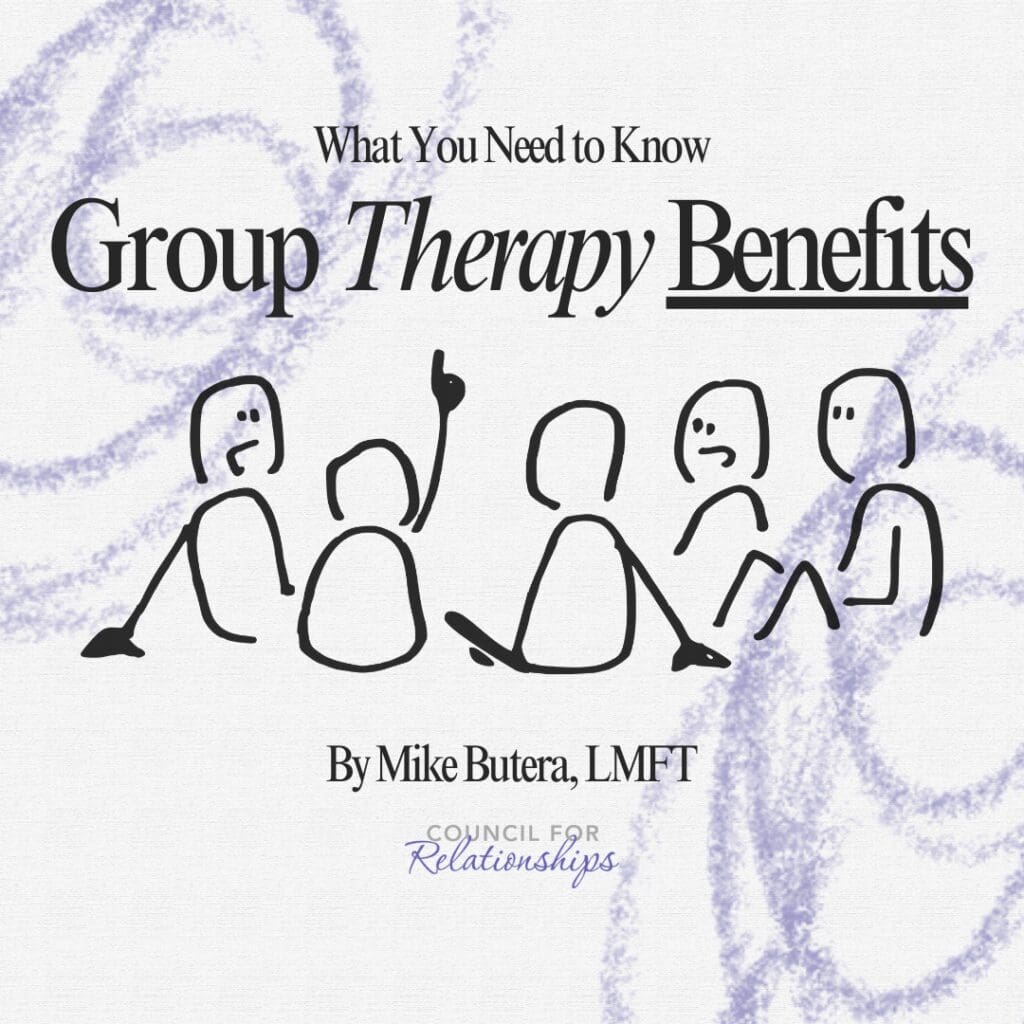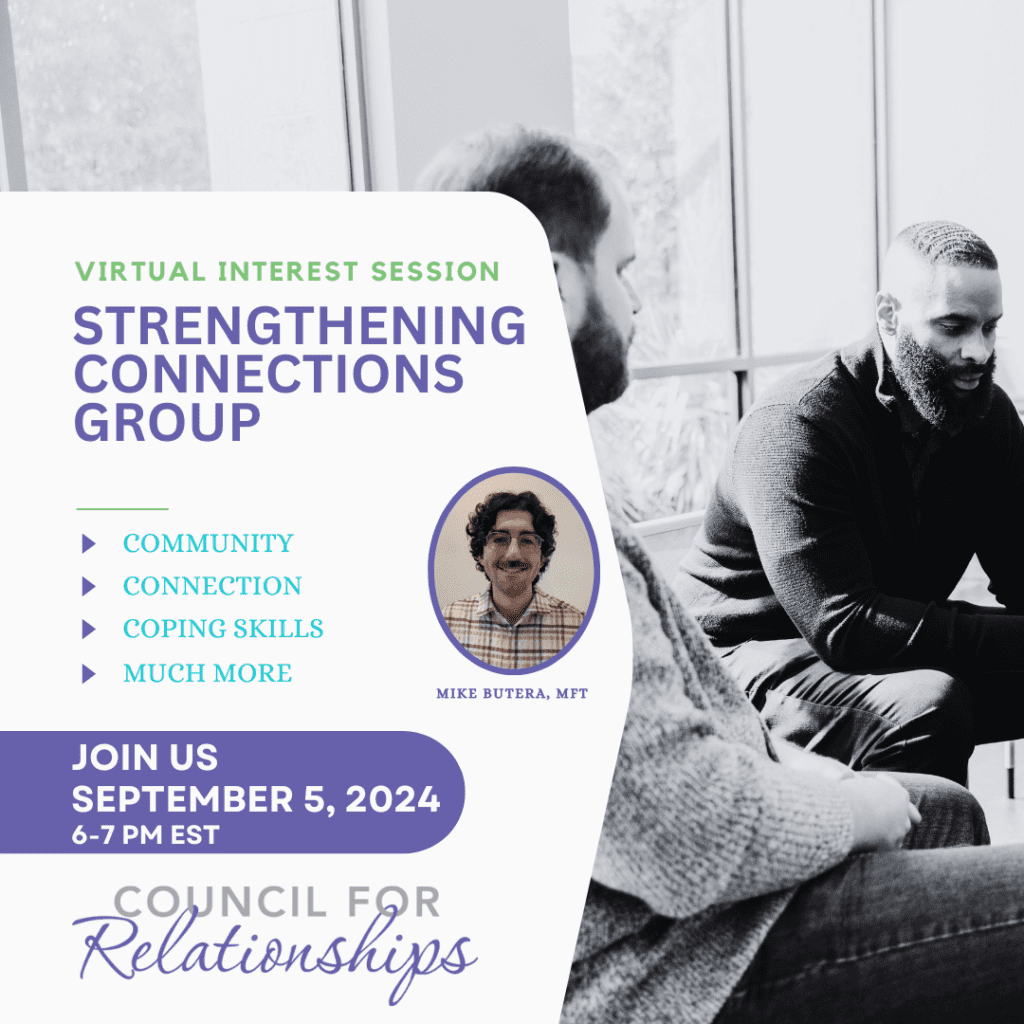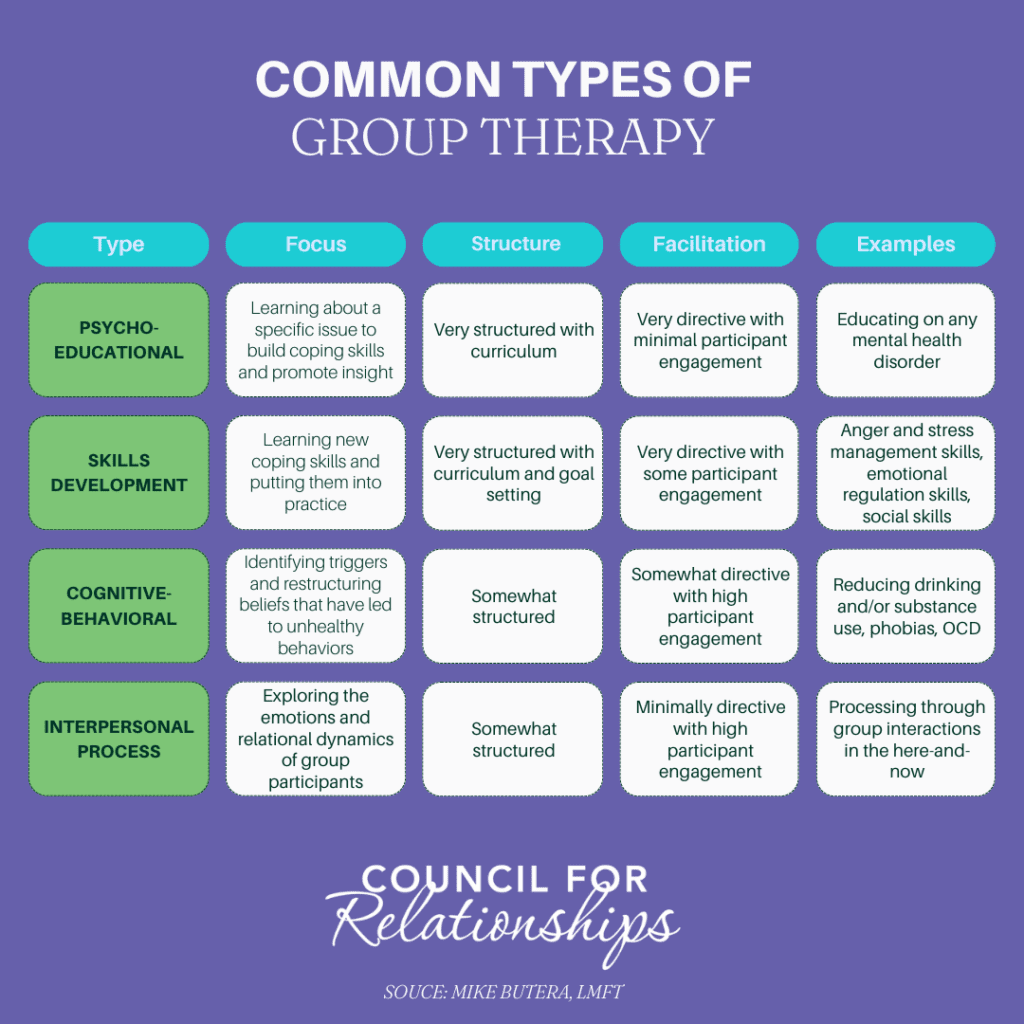Group Therapy Benefits: What You Need to Know
The benefits of group therapy are numerous and can offer a powerful path to healing and personal growth. Group therapy brings people together who are facing similar challenges, providing a supportive environment where participants can connect, learn, and grow. Whether you are dealing with grief, anxiety, or looking to build stronger relationships, understanding the group therapy benefits can help you decide if this approach is right for you.

Request a therapy appointment with Mike Butera, LMFT.
What is Group Therapy?
A therapist or mental health professional leads group therapy, where individuals facing similar challenges come together. These sessions aim to foster connection, offer support, and help participants develop new coping strategies. Conducted either in person or online, group therapy provides flexibility for participants. Understanding the benefits of group therapy helps you determine if this approach suits your needs.
Different Types of Group Therapy
There are various types of group therapy, each tailored to different needs and goals. Here are some of the most common:
- Psychoeducational Groups: These groups follow a structured curriculum designed to offer participants insights and coping strategies for specific mental health issues like anxiety or depression.
- Skills Development Groups: These groups focus on teaching and practicing new coping skills, such as anger management or social skills. These therapy sessions are goal-oriented and highly interactive, designed to actively engage participants in learning and applying new techniques.
- Cognitive-Behavioral Groups: In these sessions, participants work on identifying and changing negative thought patterns that lead to unhealthy behaviors. Group therapy’s benefits in this context include high participant engagement and the practical application of new strategies.
- Interpersonal Process Groups: These groups focus on the dynamics between participants, exploring emotions and relationships in the here and now. This type of group therapy benefits those looking to improve their relational skills in a safe environment.
Group Therapy vs. Support Groups
While both group therapy and support groups provide communal support, they differ in their focus and structure:
- Intent to Change vs. Cope: Group therapy benefits participants by focusing on changing behaviors or perspectives, while support groups, such as grief support groups, help individuals cope with ongoing challenges.
- Facilitation: In group therapy, a trained mental health professional leads the sessions, ensuring they remain therapeutic and focused on specific goals. In contrast, peers often lead support groups, with a primary focus on sharing experiences rather than achieving therapeutic outcomes.
- Confidentiality and Structure: Group therapy sessions are confidential and structured, with set guidelines and goals. Support groups tend to be more flexible, with an open-door policy and less emphasis on confidentiality.
The Benefits of Group Therapy
Group therapy offers numerous benefits that can sometimes complement or even surpass individual therapy. Here are some key advantages:
- Cultivate a Sense of Community: One of the greatest benefits of group therapy is the sense of belonging it creates. Participants realize they are not alone in their struggles, which fosters a strong sense of community.
- Gain New Perspectives: Group therapy sessions allow participants to hear others’ stories, which can offer new insights and perspectives on their own situations. This can lead to significant shifts in understanding and behavior.
- Boost Self-Esteem and Confidence: Supporting others in the group and receiving support in return can significantly boost self-esteem and confidence. It reinforces the idea that everyone has something valuable to contribute.
- Develop Social Skills: The group setting is a great place to practice social skills and improve interpersonal relationships. This is one of the benefits of group therapy that is hard to achieve in individual therapy.
- Cost-Effective: Group therapy is often more affordable than individual therapy, making it a cost-effective option for those seeking support. It allows participants to benefit from professional guidance in a communal setting.
Is Group Therapy Right for You?
Assessing your needs and readiness is essential when considering whether group therapy is right for you. Group therapy benefits those open to sharing and learning in a group setting and motivated to make positive changes. If you are dealing with an immediate crisis, individual therapy might be a better first step, but group therapy can be an excellent supplement or alternative as you progress in your healing journey.

Register for the free information session today!
Join CFR’s Upcoming Group Therapy Information Session
If you are interested in further exploring the benefits of group therapy, Council for Relationships is hosting an information session led by Mike Butera, LMFT. This session will introduce the “Strengthening Connections” group, which focuses on building deeper, more meaningful relationships within a supportive community. Whether you are new to group therapy or looking to enhance your existing support network, this session is an excellent opportunity to learn more.
For more information, visit CFR’s Strengthening Connections Group.
Additionally, if you are a mental health provider, you will want to check out the following group therapy professional development workshops we are hosting this Fall:
- Therapeutic Groups for Children and Adolescents: Creating Space for Healing and Growth
- Don’t Make Me Go to a Group! Unleashing the Power of Mutual Support
- Let’s Get to Work! Navigating the “Conflict and Rebellion” Stage through Effective Group Facilitation
About Philadelphia Therapist Mike Butera, LMFT
Mike Butera, LMFT, is a dedicated therapist at CFR. He is committed to helping clients achieve their goals and find their path to well-being. Mike’s unique background, empathetic approach, and unwavering support make him an invaluable team member.
If you are in Pennsylvania and seeking therapy or have questions about group therapy benefits, consider contacting Mike. Whether you prefer in-person sessions at our two Philadelphia offices in University City and Center City or the convenience of online therapy, Mike is here to support you on your journey.
Please visit his CFR profile for more information or to schedule an appointment with Mike Butera. You can also request a therapy appointment with one of our 85 other therapists.
If this is an emergency, please call 911 or contact the National Suicide Prevention Lifeline by dialing 988.
More Mental Health Blogs from CFR Therapists & Psychiatrists
CFR’s therapists, psychiatrists, and other mental health professionals offer much more to explore! Check out the CFR Expert Voices blog for great mental and emotional health advice on managing your anxiety, spirituality in the therapy room, improving your relationships, tips for healing from a traumatic experience, and much more. To get first access to our Expert Voices blog, join our mailing list!
If you enjoyed this blog on group therapy benefits, check out these other fantastic CFR Expert Voices blogs:


